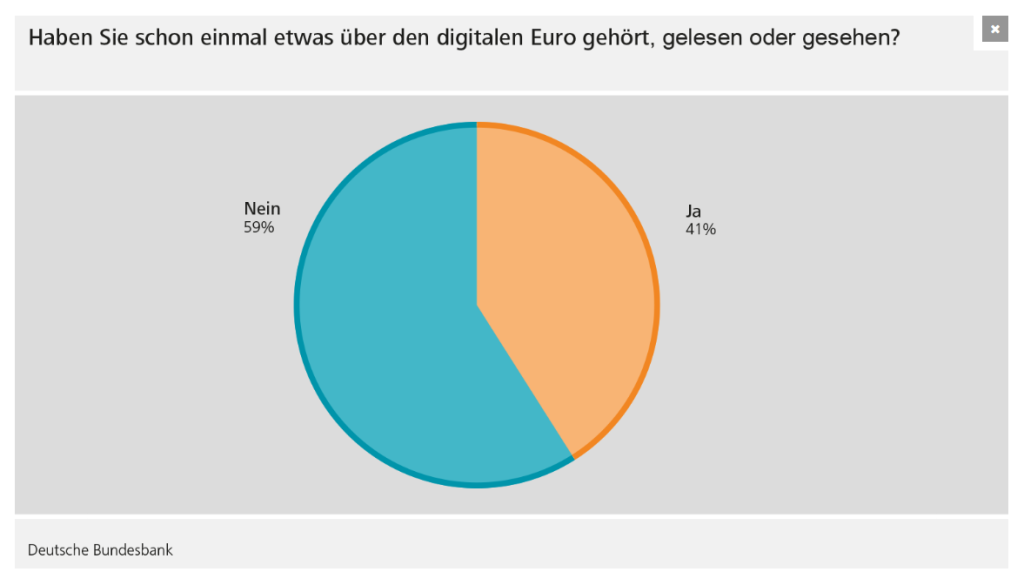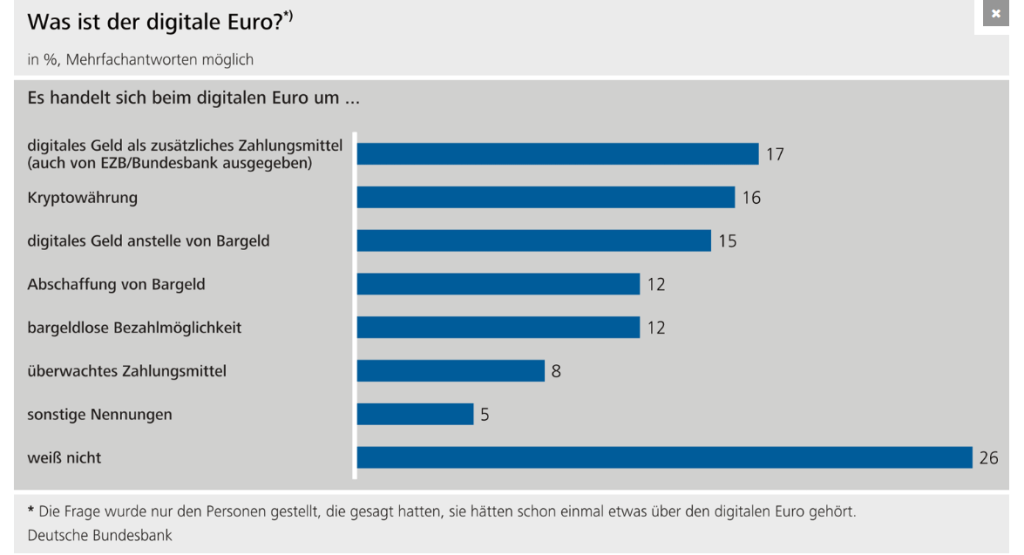As a researcher with a background in economics and a particular interest in digital currencies, I find the results of this survey on Germans’ attitudes towards the digital euro both intriguing and concerning. The fact that half of the respondents expressed a willingness to use the digital euro despite having little knowledge about it suggests a readiness for innovation in the payments landscape. However, the significant knowledge gap and misconceptions surrounding the digital euro are cause for concern.
A new study conducted by Germany’s Deutsche Bundesbank has uncovered unexpected receptiveness among Germans towards the digital euro – the European Central Bank (ECB)’s proposed virtual currency. However, the findings also highlight a notable lack of awareness that must be bridged to unlock the full potential of this innovative monetary system.
As an analyst, I’ve come across some intriguing data regarding Germans’ attitudes towards the digital euro. Sixty percent of those surveyed confessed they hadn’t encountered any information about this digital currency. Yet, half of them (50%) showed a readiness to consider using it as an alternative payment method if given the opportunity. This openness, despite limited familiarity, underscores a strong inclination among the public for innovative solutions in the realm of payments.

Misconceptions Cloud Curiosity
The survey reveals that around one-third of the respondents hold incorrect beliefs about the digital euro, thinking it will entirely replace physical currency. This misunderstanding underscores the importance of clear communication from the ECB, as they have consistently stated that the digital euro is intended to work alongside cash, providing a secure and convenient option for digital transactions.

Among Germans, privacy stands out as a top priority when it comes to adopting the digital euro. A substantial number (76%) place great importance on robust privacy safeguards. This emphasis can be attributed to the ongoing data privacy challenges in the digital realm. The European Central Bank (ECB) seeks to alleviate these concerns by emphasizing that users’ data will be significantly more protected with the digital euro compared to current commercial payment methods.
Building Trust In A Digital Future
According to Burkhard Balz, a Bundesbank board member overseeing the digital euro initiative, the survey data highlights the significance of extensive public awareness programs. He further mentioned that, under the present schedule, individuals would not be able to conduct their initial transactions using the digital euro before 2028.

The European Central Bank (ECB) intends to narrow the knowledge divide regarding the digital euro through a comprehensive strategy. This strategy includes public education initiatives, which will clarify the purpose of the digital euro as a supplementary currency option alongside cash, not as a replacement. Moreover, the ECB is dedicated to establishing a secure system that places a high priority on user privacy. According to their plans, transaction information will be accessible only to the payer and the payee, with minimal data collection by external authorities.
Digital Euro: The Road To 2028
In its early stages, the digital euro is being worked on, primarily to finalize regulations and investigate potential methods of distribution. This preparatory stage is projected to be completed by October 2025. Germans, along with Europeans, should not expect to use the digital euro for routine transactions before at least 2028 based on Bundesbank’s predictions.
Read More
- LUNC PREDICTION. LUNC cryptocurrency
- BTC PREDICTION. BTC cryptocurrency
- SOL PREDICTION. SOL cryptocurrency
- BICO PREDICTION. BICO cryptocurrency
- USD ZAR PREDICTION
- USD COP PREDICTION
- USD PHP PREDICTION
- VANRY PREDICTION. VANRY cryptocurrency
- USD CLP PREDICTION
- EUR RUB PREDICTION
2024-06-05 22:12